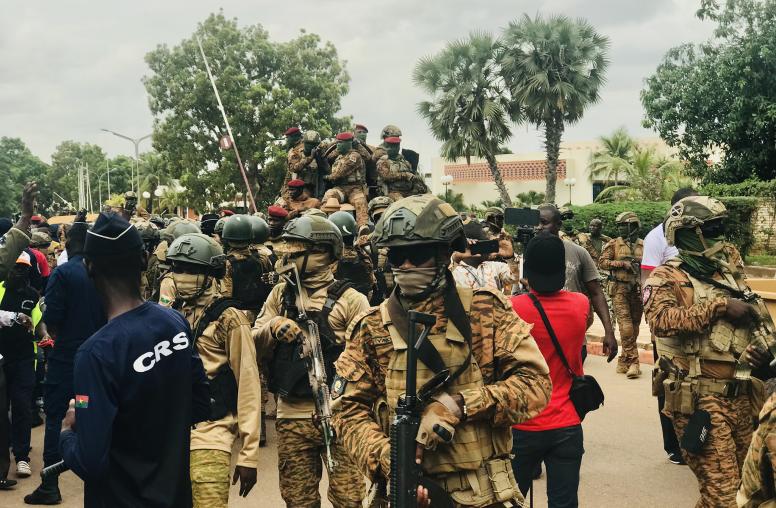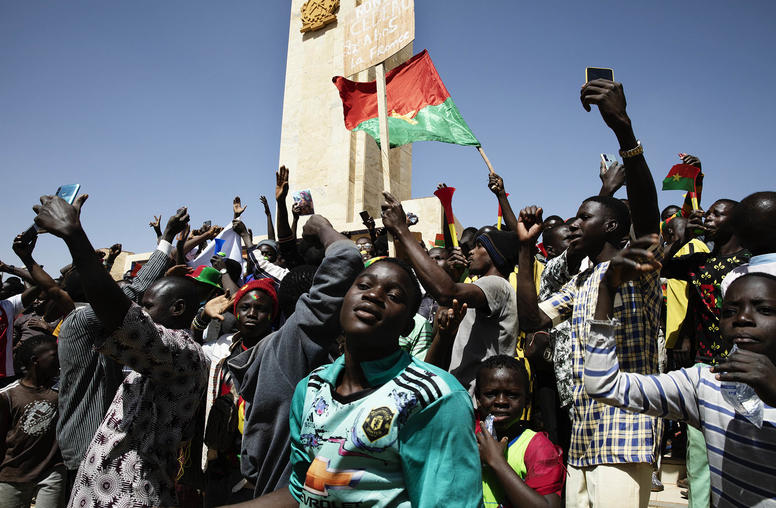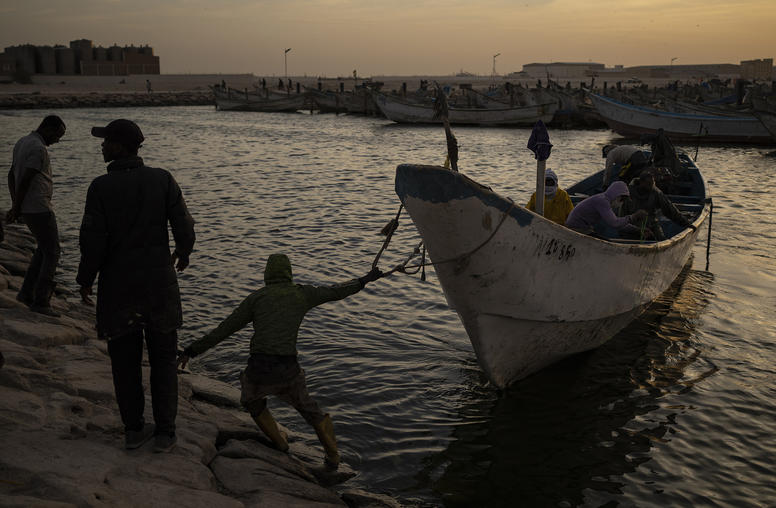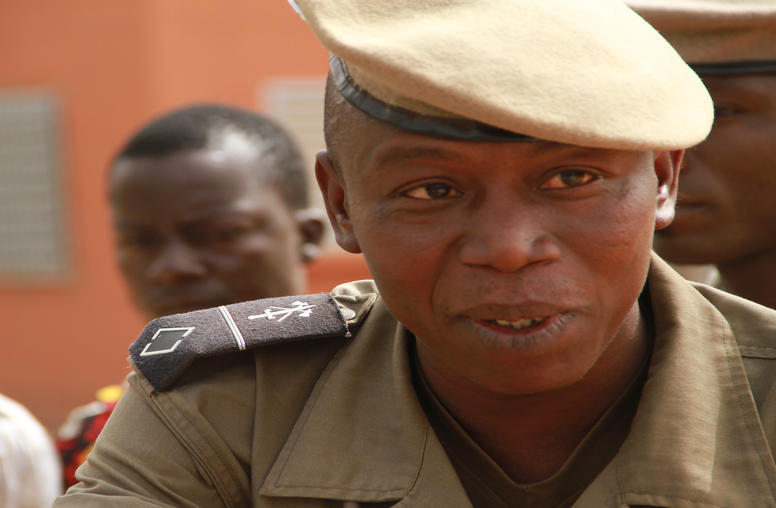Amid Rising Sahel Violence, Burkina Faso Builds a Response
As attacks surge regionwide, local dialogues from Senegal to Nigeria strengthen communities’ security
A perfect storm of violence is breaking upon Africa’s Sahel. Since late 2018, communal conflicts—many over access to food, water or productive land—have produced thousands of deadly attacks. Across the region, nearly 4,800 people died in conflicts from November to March, according to the violence-monitoring group ACLED. The greatest surge in bloodshed is in Burkina Faso, where communal militias or religious extremists killed 500 people over five months. But amid the dire headlines, governments and civic groups in Burkina Faso and other Sahel countries cite progress in stabilizing communities with a basic step that simply has seldom been undertaken: broad, local dialogues among community groups, police forces and officials. Community leaders and government officials say they are now expanding those dialogues to improve national security policies to help counter the tide of violence.
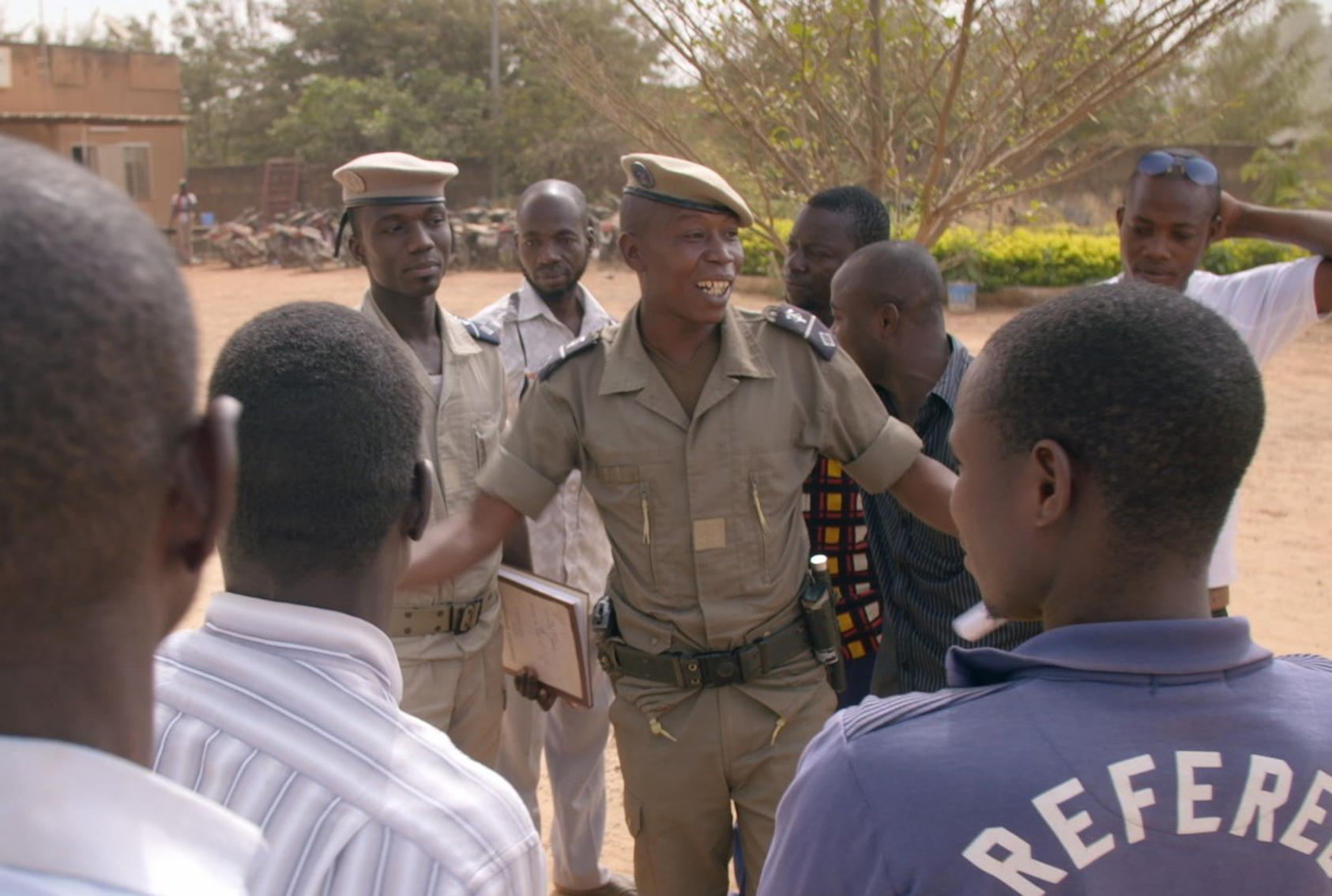
The Sahel’s deepening agonies pose global humanitarian and security risks, according to policymakers as distant as the European Union and the U.S. Congress. Conflicts and climate shocks have displaced about 3 million people across the Sahel, pushing hundreds of thousands to flee as far as Europe. In six core countries of the region, including Burkina Faso, nearly 6 million people struggle to survive food shortages during the May-to-September season known as “the hunger months.” And food shortages may well increase; the population is on track to double within 30 years. A congressionally mandated Task Force on Extremism in Fragile States has urged U.S. and international policies to strengthen the accountability and inclusiveness of governments in the Sahel as a vital step to forestall greater religious extremism and terrorist violence.
In April, ISIS leader Abu Bakr al-Baghdadi named the Sahel as a new priority for his group’s attacks, welcoming the growth of new branches in Burkina Faso and Mali. The United States is providing $111 million, and working with France to provide training, for a regional counterterrorism force drawn from Burkina Faso and four other Sahel nations.
Local Dialogues Counter Terrorism
Military leaders, counterterrorism specialists and scholars agree that no amount of armed security forces can prevent a new generation of violence unless the Sahel can achieve the accountable, inclusive governance urged by the task force and other experts. Yet as the Sahel nations struggle toward more democratic, accountable political systems, they face a problem basic to many former colonies. Their security and justice systems were shaped by authoritarian governments, both before and after independence. These systems thus were trained not to protect and support local communities, but rather to defend centralized governments. So an utterly basic requirement for security—dialogue and cooperation among local populations, police and governments—is missing.
In 2015 USIP began working with governments and civil society groups in the Sahel to fill that gap through “Justice and Security Dialogues,” a process that the Institute has used in more than a dozen countries, from Nepal to Libya to Tanzania. Dialogues were conducted at locales in or near the capitals of Senegal, Mali, Burkina Faso and Niger, and in the central Nigerian city of Jos. In each of those communities, the dialogues reduced security problems, and they now have triggered wider initiatives by national governments.
Burkina Faso: Stabilizing a Violent Locality
Burkina Faso has seen the Sahel’s most severe current spike in violence, according to ACLED (the Armed Conflict Location & Event Data Project), and the state now is unable to deploy police or security forces in 156 of its 350 departments. But the dialogue project in the rural municipality of Saaba, just east of the capital, Ouagadougou, is offering a model to help stabilize violence-ridden localities.
Saaba, a collection of 26 villages around a district center, faced high levels of robbery, burglary and other crimes—and suffered a wave of 14 unsolved murders of local women, according to USIP’s country representative, Sandrine Nama. Burdened by economic disparities and social pressures from the explosion in Ouagadougou’s size, Saaba “had no framework for discussing community problems,” said Nama. “Whenever there was a conflict, it would escalate immediately into violence.”
The civic movement Balai Citoyen (Citizen’s Broom), and current and former police and government officials, worked with USIP to make Saaba a test case for an unprecedented dialogue between a Burkinabe community and its government and police officials. Community members and officials soon decided to create a coordinating body to represent all major groups in improving security. That step improved cooperation among three separate security forces: the civilian police, the National Gendarmerie (a branch of the military) and the Koglweogo, village-based self-defense groups independent of government. Saaba’s new coordinating council established security watch groups in each village, including a Koglweogo representative in each. Police and gendarmes began joint security patrols. Crime levels dropped and the wave of killings of women was halted. The new cooperation among security forces and community members helped to dismantle drug-trafficking networks and foil a planned terrorist bombing.
A Model for National Policy
“As we have engaged with the national-level authorities about the progress at Saaba, we realized that the Saaba experiment in fact had implemented exactly the kind of community-level coordination that the government already had been trying, unsuccessfully, to achieve in villages nationwide,” said Nama. “And the people had done this—not as something imposed by the state, but through dialogue, as a solution for their own problems.”
National officials told the Saaba community that the government wants to monitor the dialogue project to find ways to revise national security policies, including a nationwide expansion of Saaba-style community coordination, Nama said. A vital element of the dialogue is its successful inclusion of the Koglweogo, who in disparate parts of Burkina Faso have clashed with the state security forces.
“Another area of interest is community policing,” Nama said. “A lot of international organizations are coming to us on this question, partly because Saaba offers a model. … We have a number of mayors now coming to us to discuss the security problems in their communes,” and seeking advice on launching local dialogues. Participants in Saaba’s dialogue are now involved in government discussions on a national strategy to use community policing to counter the country’s escalation in terrorist attacks, she said.
Nigeria: Dialogues to Calm Herder-Farmer Conflicts
Similar community dialogues have helped to stabilize communities in or near Dakar, Senegal; Bamako, Mali; and Niamey, Niger—as well as in Nigeria’s city of Jos. In each country, they have led national governments to begin making changes in national policing and security policies.
In Nigeria, the Justice and Security Dialogue in Jos helped a neighborhood of 12,000 people restore ruptured relations with police. In 2016, local tensions led to a mob burning down the police station in the neighborhood, called Angwan Rukuba. “There were military checkpoints throughout that area, but police were not able to work there and crime increased—disappearances of people, drug abuse, and violence between Christian and Muslim communities,” said Isioma Kemakolam, USIP’s program coordinator in Nigeria.
In 2015, USIP began working with the West Africa Network for Peacebuilding, and with community leaders and officials in Jos, to launch a dialogue on ways to improve security in Angwan Rukuba. The dialogue re-knit relations between police and government officials and community representatives, including youth, women and religious groups. Community leaders helped build a new police post and invited the police force to return. “Now, we have 305 police officers back in the area, and the military checkpoints have been reduced from 12 to three,” Kemakolam said.
Like Burkina Faso, Nigeria is adapting the Justice and Security Dialogue to calm communal conflicts driven heavily by droughts that have forced herding communities deeper into farming regions in search of grazing lands. Nigeria’s farmer-herder clashes killed more than 2,000 people last year and have displaced hundreds of thousands of people. The office of Nigerian Vice President Yemi Osinbajo “has formed a partnership with USIP to roll out the dialogues in seven states as a framework for addressing the farmer-herder crisis,” said Kemakolam.
Other Nigerian government bodies are using the dialogue model “to address more than just conventional security problems,” said Kemakolam. “One local community is now using it to find solutions for a problem of teenagers using drugs in schools.” The Plateau State government is using it to improve collaboration among security agencies, she said. Police in Plateau are using the model to improve accountability in their operations, for example in reforming police procedures for dealing with gender-based violence. That initiative is to begin this year, she said.
The varied uses of the dialogues in the Sahel underscore that “a strength of the JSD [Justice and Security Dialogue] is that it leaves essential decisions—such as which security problems to address, and how to do it—to the community participants,” said Ena Dion, who heads the Sahel dialogues at USIP in Washington. “The process also relies on resources available to the community to support solutions. This means each dialogue is automatically adapted to the local context. It deepens the participants’ ownership of the process. And we think it contributes to the cost-effectiveness and sustainability of the resulting gains in security.”
